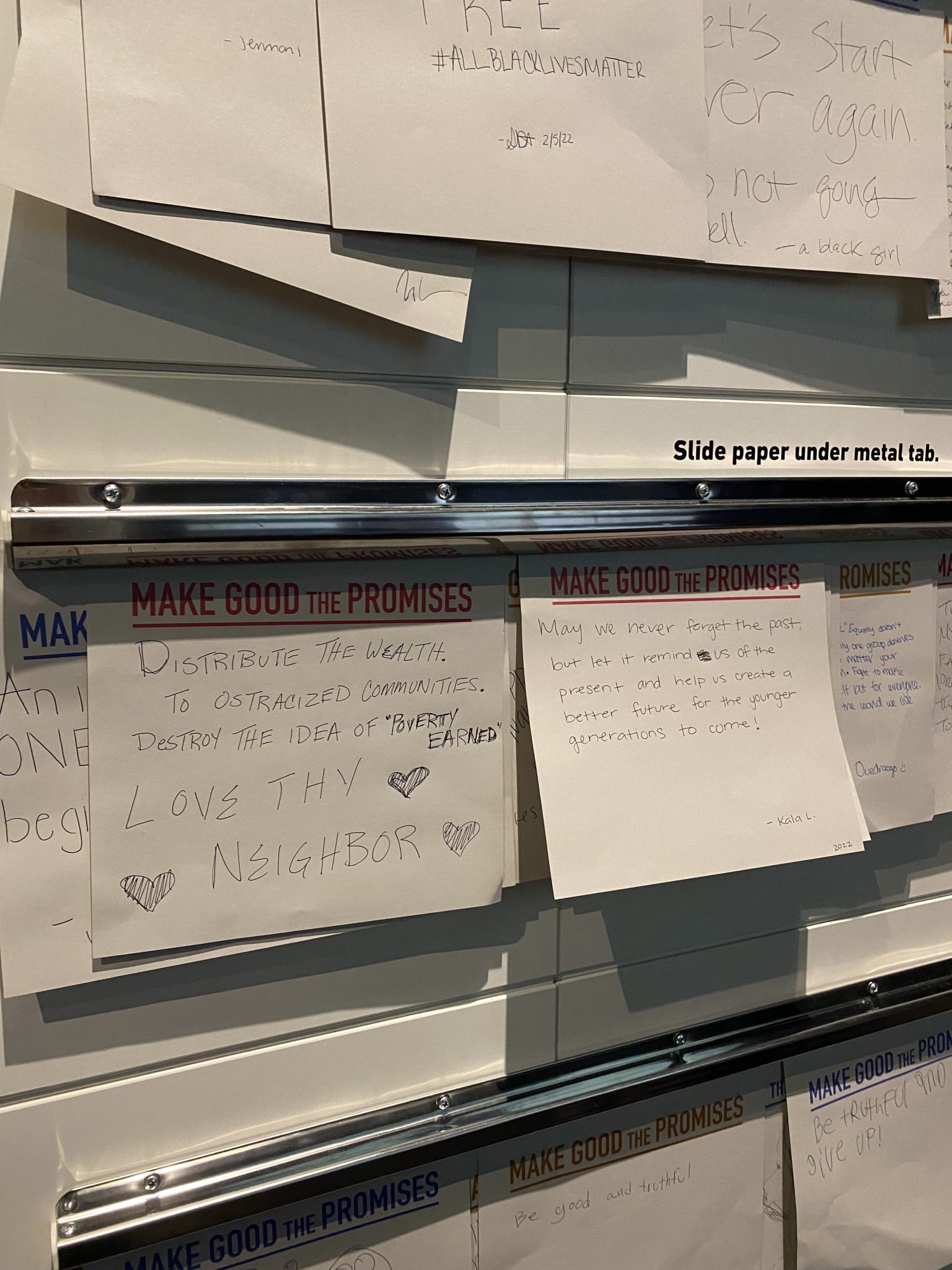Koai Solano Ortiz ’24, reflects on the importance of history and how it helps us understand our past, present, and future.
Our trip to Washington D.C. allowed me to reflect on the complexity of our lives and how so much of our past molds our current selves. Cultures carried into the future from our past managed to remain alive and even branch off into new ones. Multiple museums visited by our group emphasized the significance of the beliefs of our predecessors.
While visiting the National Museum of African American History and Culture, there was an artifact mentioning how enslaved African Americans shared Yoruba, Igbo, etc. traditions in the U.S. A few hours later, we ended up in the National Museum of American Indian, where I reflected on my own life. Coming from a Mexican family with unknown indigenous roots, I pondered deeply about the influence indigenous peoples had on traditions/religious beliefs I celebrate or believe exist.
In my case, I celebrate El Dia de Los Muertos (The Day of the Dead), a holiday celebrated by Mexicans and a plethora of indigenous folks that connects us to the spiritual realm of the dead. Another lesser known example is the existence of La Santa Muerte (The Saint of Death), rejected by the Catholic Church and heavily associated with criminal activity, indigenous peoples disguised this person as a saint in order to continue dedication to their own beliefs in face of Catholic converters. On a related note, when visiting the Holocaust Museum, it only lead me to further reflect on the vile systems that Jewish people were also subject to. While in the museum, the amount of anti-Semitic imagery, flags, and media so engrained into the world we live in, terrified and revolted me.
The mark that people from the past leave for the generations to come is everlasting, whether positive or negative, which is why reflection on our history is so important. Despite the attempt of those in power to erase our roots, our beliefs, our traditions, our ancestors, and unique identities, it ultimately proved futile. This is not to say an immense amount of harm was not done but rather a reminder that where we come from should not and cannot be cast away or buried easily.
-Koai Solano Ortiz ’24

